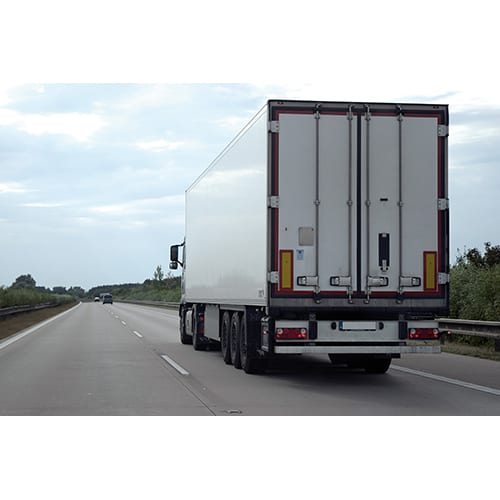The government should ban sales of diesel HGVs by 2040 at the latest as part of a plan to make the road and rail freight industry carbon-free by 2050, according to the National Infrastructure Commission.
Commission chairman Sir John Armitt said the move was necessary to provide the freight industry with the certainty it needs to invest in new, green technologies and prepare for an environmentally friendly future.
The commission has produced a report entitled “Better Delivery: the challenge for freight” which estimated that over the next 30 years heavy freight transport in the UK will increase by at least 27 per cent – and could rise by as much as 45 per cent.
And the number of miles covered by vans delivering goods could increase by as much as 89 per cent over the same period.
Freight on road and rail currently produces around nine per cent of the UK’s greenhouse gas emissions today. But if no action is taken the sector could be responsible for around a fifth of all allowed emissions by 2050, the report warned. Without government action, the problems of congestion and emissions are likely to worsen.
The NIC wants the government to set out, within the next two years, how it plans to ban all sales of new petrol and diesel HGVs by 2040 and begin preparing the infrastructure for the transition.
It recommends the creation of a Freight Leadership Council to bring all parties together to solve future challenges with an integrated strategy.
NIC recommendations include:
– The government to prepare detailed assessments of the infrastructure needed to enable the uptake of battery electric or hydrogen lorries, and for the energy regulator Ofgem to work with the freight industry to enable charging at depots by 2025 – all to support the ban of petrol and diesel HGVs by no later than 2040.
– Clear long term targets to enable the industry to manage the transition to cleaner fuels and vehicles and take advantage of the opportunities for increased efficiency and reduced costs from new low-carbon technologies.
– The government to publish by the end of 2021 a full strategy for eliminating carbon emissions from rail freight by 2050, specifying the investments and subsidies that it will provide to get there.
– New planning guidance for local authorities by 2020 so they can incorporate effective policies and schemes for freight as part of their Local Plans and Local Transport Plans – including the provision of land or floor space for storage and distribution activities, and to maximise potential for freight trips to be made at off-peak times;
– City authorities should incorporate plans for freight as part of their long term infrastructure strategies, covering transport, employment opportunities and new homes.
– The government to develop a framework for minimum standards of freight data collection, to help support the development of the freight policies that form part of these long term infrastructure plans.
– A new Freight Leadership Council, meeting bi-annually and bringing together representatives from all freight transport types and parts of the supply chain, as well as from the Department for Transport, Department for Business, Energy and Industrial Strategy and Ministry of Housing, Communities and Local Government.
A ban on the sale of new diesel HGVs by 2040 is a feasible target for the logistics industry if appropriate support is given, according to the Freight Transport Association. Christopher Snelling, head of UK policy, said: “The logistics sector is more than willing to make the permanent switch away from carbon-based fuels, but the government must first ensure the infrastructure and funding is in place to support this. FTA is calling for the government to make the necessary investments into alternatively-fuelled vehicles before acting upon the NIC’s recommendation to ban the sale of new diesel HGVs by 2040.”
The Road Haulage Association has described the recommendations as lacking a clear roadmap and making assumptions about technologies and infrastructure that haven’t yet materialised. Chief executive, Richard Burnett said the call to ban the sale of new diesel lorries by 2040 is not credible given there are no viable alternatives on the market.
But the Rail Freight Group welcomed the report saying it made important recommendations on the future of freight.
Director general Maggie Simpson said: “We are pleased that the Commission has set out a pathway for Government support in decarbonisation of rail freight. With battery and hydrogen technologies in their infancy on the rail network, and the extent of electrification still limited, the industry cannot be expected to deliver the necessary investment without the backing of government. This recommendation gives a way forward to provide the certainty that the rail freight sector needs, and a framework to oversee delivery.”





